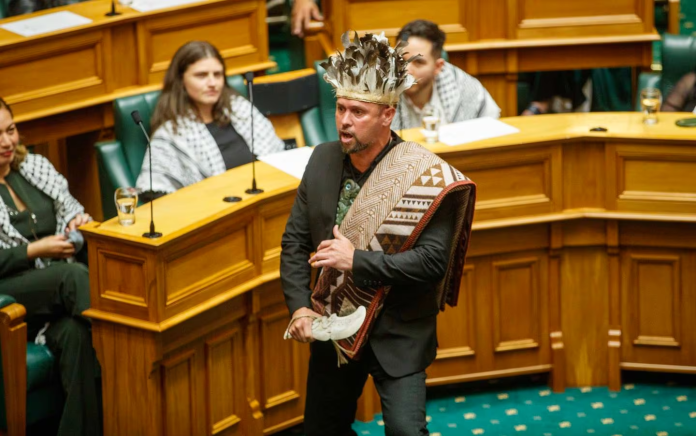Indigenous Māori politicians violated protocol at the opening of New Zealand’s parliament on Tuesday by oathing first to their descendants and the country’s founding document. Only after that they swore an oath to Britain’s King Charles III.
The New Zealand Parliament met for the first time since the October 14 election. All MPs must swear an oath to King Charles III, as he is considered the head of state.
The six lawmakers belong to Te Pati Māori, the smallest party in Parliament representing the Māori people. Each has sworn an oath to their mokopuna, or descendants, to adhere to tikanga, or Māori practice, and to the Māori version of the Treaty of Waitangi.
The Treaty of Waitangi, signed in 1840, is the founding document under which the British and Māori agreed to govern New Zealand. However, their versions differ, with debate over whether the Māori ceded sovereignty to the British.
Some Te Pati Māori members wore feathered headdresses and cloaks, honouring their traditional roots, and sang or performed indigenous callings.
Party members later swore an oath to the king, but at least two decided to change the word Kingi Tiare for Kingi Harehare. A Te Pati Māori leader told local media that Harehare is just another name for Charles. However, there are those who believe it could mean something unwelcome or offensive. Other Māori-speaking MPs were not concerned over the change.
Te Pati Māori claimed on Friday that the oath was a symbol of colonial power, which parliament placed above the position of indigenous people. The move came amid escalating race relations issues in New Zealand. Earlier that day, Te Pati Māori led protests across the country.
Although the republican movement in New Zealand is not large, there is a vigorous debate on whether the Pacific nation should become a republic with a citizen as head of state. This feeling is stronger in some indigenous communities, both in New Zealand and other places, as the King is seen as a symbol of colonialism.
In 2022, Australian Indigenous MP Lidia Thorpe was forced to re-take her parliamentary oath after changing it to call the British Queen a coloniser. Some New Zealand politicians had previously tried to dodge the oath of office but refused to participate in government.
